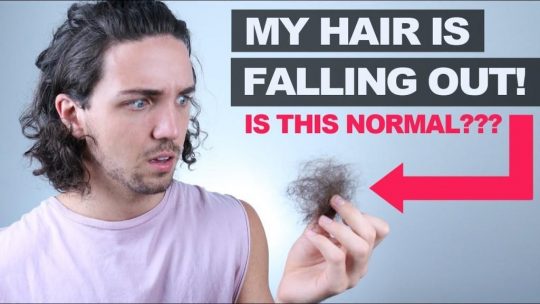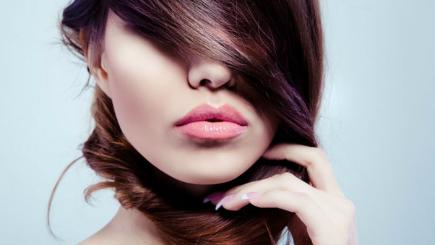Falling out of hairs is a common phase among the major events of the life cycle of a hair. When there is a shedding, a new strand grows out at its place. A person normally sheds about seventy to hundred strands per day, but when a person starts losing his hairs more than usual, and new strands do not grow in its place; bald spots start developing. These might grow back, but is weak and thin which is easily pulled out by slight combing, can also lead to balding.

Hair falling and treatments in Lahore
Balding can be highly stressful and people often come up with the questions of why their hairs are falling out. There are various reasons for this problem. It is more common in males as compared to females; which illustrates the fact that it can be genetic. This type of hair loss is called as male pattern baldness or androgenetic alopecia. This is mainly under the influence of dihydrotestosterone hormone which causes the follicles to fall in individuals whose scalp receptors are sensitive to this hormone. This issue can be hormonal, stress related, disease related and some medications can also trigger shedding.
Hair falling out is a major complaint of the patients suffering from thyroid disorder. It can be the alteration in the levels of secretion of thyroid hormones in the body. The levels might rise or fall above and below the normal values, called hyperthyroidism and hypothyroidism, respectively. Both of these conditions can trigger hair loss. Such conditions in which it occurs as a related symptom of a disease, it is often reversible and can be treated by simply reversing the root cause. The patient is in a need to treat his thyroid disorder which will reverse back the growth. Hair falling out can be as a result of hormonal changes. As these hormonal changes are a major part of female life, the reason behind female hair loss is mostly hormonal.
Why is my hair falling out Female
Hair loss is usually triggered during menopause and after childbirth in females. Hormonal changes can also arise due to genetic causes. The level of production of different hormones keeps on fluctuating with age. The composition also keeps changing throughout life. Dihydrotestosterone DHT, which is the main cause of male pattern baldness, could also be responsible for hair loss in females as this hormone is produced in females, too.
Impact of stress on hair loss
A lot of people ask how hair falling out can be related to stress. Stress can be a factor contributing to a number of diseases. Stress can also trigger it when a person is subjected to extreme anxiety. Stress can be physical and psychological; however, no prominent hair fall is seen associated with psychological stress. Physical stress can arise from surgeries, trauma, childbirth and seasonal fever. It is more prominent when seen in reference to physical stress. But physical stress can be eliminated by following therapies, daily exercises, meditation and removing stressors, and the hair fall, too, subsides as the body heals itself. Hair falling out can be as a result of taking medications. Pharmaceutical medicines are often responsible for causing a number of side effects along with its major targeted effect. These side effects can be in the form of baldness and chemotherapeutic medicines are the most famous example where these medicines can trigger hair loss. Other such medicines include regimen taken for thyroid disorders, oral contraceptives which are responsible for hormonal imbalances, antidepressants, anti-coagulants, and anticonvulsant and beta blockers. These medicines can affect different people differently depending upon their genetic make-up.
Autoimmune diseases and hair falling out
Autoimmune diseases can also lead to hair falling out. Lupus is an autoimmune disease in which the body’s own immune system starts developing antibodies against its own cells. When these antibodies start attacking follicles, hair loss results. Dandruff can also cause hair loss as it urges the person to scratch the scalp shedding and pulling the hair strands from their roots. Psoriasis is also a disease condition associated with hair fall due to excessive itching as the scalp becomes itchy and inflamed due to excessive dryness. Tinea capitis is an infection which causes the hair falling out. It is caused by a fungus and it can result in complete shedding or incomplete shedding of hairs which results in leftover hair stubs. This is a highly contagious condition and can transfer from one person to another. Folliculitis is the inflammation of follicles that is caused by bacteria or fungi. It can result in permanent hair loss, if not treated appropriately. Alopecia areata is a condition accompanied by loss of hairs in the form of tufts and development of visible bald spots in the affected area. It is usually genetic and families suffering from autoimmune diseases such as arthritis and diabetes.
Hair falling out due to nutritional deficiencies
Hair falling out can also result from nutritional deficiencies. People taking restrictive diet plans are at a greater risk of developing hair loss. Zinc and iron are the leading sources that are directly linked to hair fall. Low levels of these minerals can result in hair fall. Some other nutritional sources like vitamin D, vitamin B12, vitamin C, vitamin A, copper, biotin, fatty acids and selenium have also shown to have an indirect link with hair breakage. Some of these are responsible for hair strength while others may be responsible for composition of follicles. People suffering from nutritional deficiencies can improve their hair growth and strength by taking a balanced diet having adequate proportions of essential nutritional components required for hair growth. Nutritional supplements of iron and zinc are also easily available at various departmental stores and pharmacies. Biotin is also available in commercial form. If the hair loss is not due to any medical issue, it can be corrected with modification in eating habits and lifestyle. Correcting the root cause is necessary to correct the hair loss triggered by medical anomalies and conditions.
Frequently Asked Questions
Who is the best doctor treating hair fall problems successfully in Lahore Pakistan?
Dr. Ahmad Chaudhry is the best doctor and specialist, qualified from France and has more than 23 years experience, treating hair related problems successfully in Lahore Pakistan.
What is the consultation fee of the specialist in Lahore Pakistan?
There is no consultation fee and you can also send your close up photos of hair loss area through WhatsApp.
People also search
| Hair loss prevention treatment | Telogen effluvium and regrowth |
Get hair falling treatment Lahore | Call or WhatsApp | +923334309999



